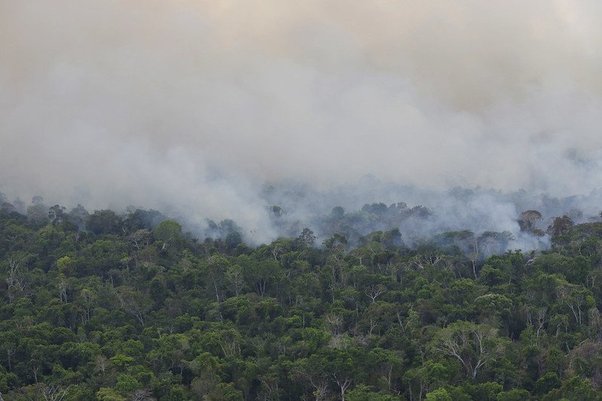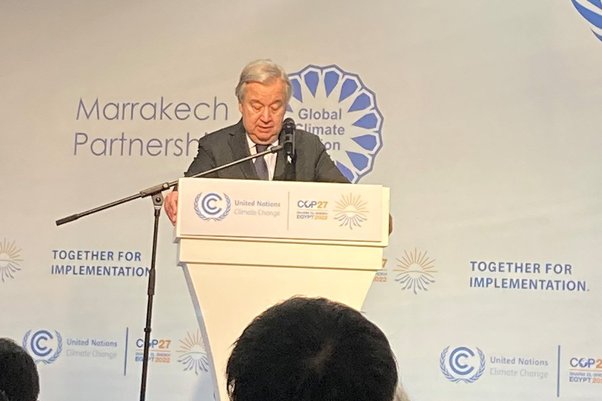Despite some progress on loss and damage, world leaders at the UN climate summit failed (once again) to agree to phase out fossil fuels
COP27 in Sharm El-Sheikh has come to an end – and after days of frantic negotiations, we finally have the text of the final agreement.
Here’s our take on what the parties present at COP managed to achieve, and where the agreement falls short:
Fossil fuels
We’ve known for a long time that burning fossil fuels is the single largest cause of the climate crisis, and the need to rapidly cut down on their use has been confirmed by UN report after UN report.
So the fact that COP27 once again failed to secure this most fundamental of measures is reason alone to deem it a failure.
This outcome is perhaps unsurprising given the enormous presence that the fossil fuel industry had in Sharm El-Sheikh this year.
Our analysis found 636 fossil fuel lobbyists were granted access to the talks, with a presence larger than any country delegation after the United Arab Emirates – the host of next year’s COP28.
There were over 25% more fossil fuel lobbyists present than there were at last year's COP26 in Glasgow.
Coal (unabated coal power) is the only fossil fuel that parties agreed to phase out – a copy and paste from the COP26 deal.
The agreement also vaguely includes a reference to the benefits of “natural” gas (aka fossil gas) as a transitional fuel. But we know that isn't true.
ICYMI: BP’s CEO was registered as a member of the Mauritanian delegation, and Total’s CEO was confronted by Ukrainian activists and climate campaigners over Russian oil profits and the company’s role in the climate crisis.
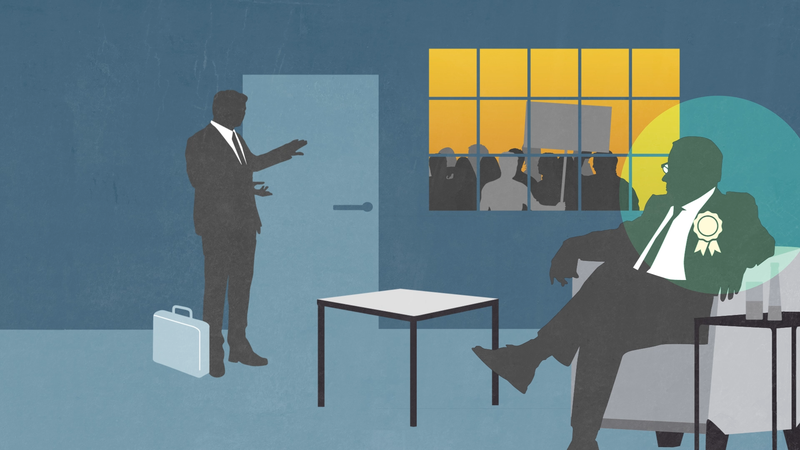
Land and environmental defenders
It was inspiring seeing the role of civil society, including land and environmental defenders who risk their lives to do their work.
They came, from all around the world working together as a united front, fighting for their rights and demanding urgent action – even the UN has recognised the impact of civil society’s push to get leaders at COP to act, at a time when participation in decision-making was severely restricted.
Civil society observers were subjected to intimidation, harassment and surveillance during the two-week gathering and being prevented from meaningfully participating in negotiations.
After the launch of an urgent appeal from 170+ organisations including Global Witness and despite a strong pushback from UN officials, the right to a clean, healthy, and sustainable environment made it into the final text of the COP27 cover decision – as well as a reference to the Paris Agreement language recognising the rights of Indigenous Peoples, local communities and people in vulnerable situations.
In the face of urgent calls to recognise the threats that environmental defenders face, the cover decision text as well as other negotiations on decisions related to public participation in climate policy decision-making, failed to specifically acknowledge the contribution that land and environmental activists make to climate action.
However, it was encouraging to see UN Secretary General Antonio Guterres recognising the role of defenders in his COP27 opening speech and the Prime Minister of Norway, Jonas Gahr Støre calling for a moment of silence to commemorate the deaths of defenders specifically citing our annual report published a few weeks ago.
Over 1,700 land and environment defenders have been killed in the last decade, as a result of standing up for their rights to their land and to a healthy environment.
Future climate negotiations must promote just and equitable solutions to climate change that upholds the rights of land and environment defenders.
ICYMI: A deal for Vietnam to fast-track its energy transition was expected but did not happen. We hope that this provides more time to secure the release of climate defenders currently behind bars in Vietnam.
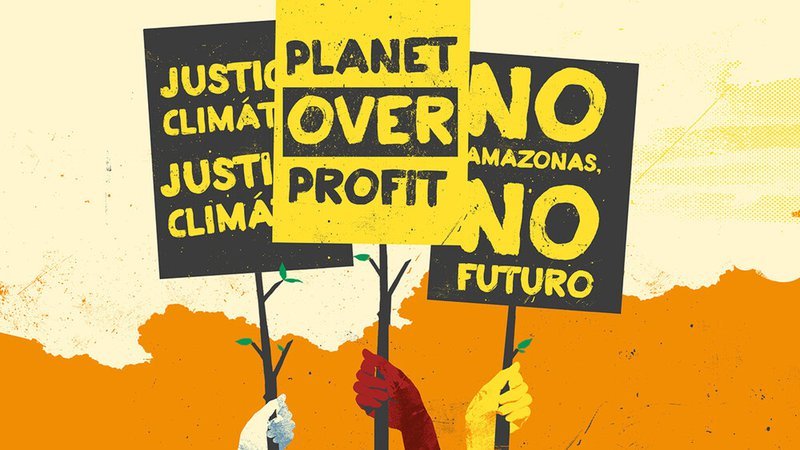
Forests
The world’s largest food companies whose products have been linked to heavy emissions and rainforests loss were out in force at COP27.
They released a new anti-deforestation plan to align their business practices with the 1.5°C climate target – but the plan fails to mention human rights and lacks any mechanism for companies to be held to account for their promises.
It’s another voluntary scheme, the like of which we’ve seen launch and fail time and time again.
Big agribusiness and those financing it are the polluters still flying under the radar, and only strong national laws will make them change.
The final COP text “emphasises” the importance of forests and other ecosystems to keeping 1.5°C alive and recalls that countries should aim to slow and halt deforestation – but this represents no tangible progress from the commitments made at COP26 in Glasgow.
However we were pleased to see the Secretary General and his group of High Level Experts on net zero make it clear that there is no net zero that includes deforestation. It’s a red line.
We agree. For too long businesses have been claiming to be working towards net zero whilst chopping down forests. That greenwash is now a little bit harder to get away with.
We also welcome the development of a new partnership to monitor the Glasgow forest pledges.
We’ll be working to ensure it focuses on cutting off the pipeline of international funds from big banks and financiers to deforestation projects.
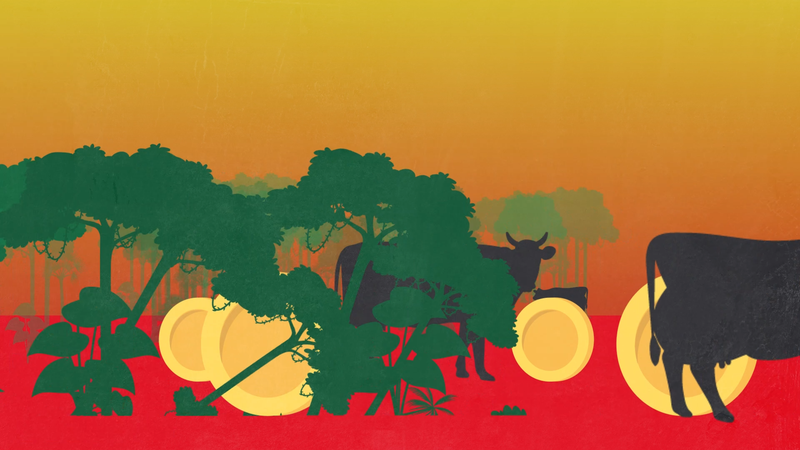
Loss and damage
Against all odds, a historic fund was adopted at COP27 for loss and damage – the fund is based on the principle that those most responsible for the climate crisis should compensate those who are most impacted by it.
It’s an important first step towards climate justice, but it remains to be seen how money will get in and out, and how people on the frontlines of the climate crisis will be heard.
Without a pathway and commitment to end our addiction to fossil fuels, our world leaders have fallen short in actions to avoid and effectively minimise loss and damage.
This summit, deemed the "African COP", was yet another opportunity for leaders to stand with those who are bearing the brunt of the climate crisis: environment defenders, Indigenous communities and climate activists from countries most affected by climate breakdown.
Instead, the interests of the fossil fuel industry have been put above people and our shared planet.
Change is possible – but it will take dismantling the obscene power and influence that the fossil fuel industry enjoy, and creating the right conditions so those who are at the frontline of the climate crisis, are heard and have a seat at the table.

